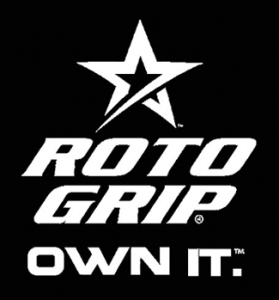(Extensions of Remarks)
- Mr. Speaker, I rise today to recognize the Japanese American National Bowling Association (JANBA). From its noble inception to oppose discrimination after World War II, JANBA continues to be a forum for social interaction and friendly competition for its thousands of members throughout the United States.
- After internment in World War II, Japanese Americans trying to return to a life of normalcy discovered bowling as an engaging social pursuit. The sport quickly became a popular pastime with many joining bowling leagues and competitions. However, a restriction against Japanese Americans on the national stage was quickly realized.
- In 1947, Mr. Rokuro “Fuzzy” Shimada was planning to bowl in a Santa Clara bowling league. However, he was denied acceptance due to the league’s “whites only” membership policy set by the American Bowling Congress (ABC). In objection, the National Japanese American Citizens League (JACL) Nisei Bowling Tournament was birthed later that year. The selected venue was Salt Lake City, Utah, the headquarters of the National JACL at that time. Despite its inaugural year, the tournament was able to attract nearly 300 participants.
- Admirably, Mr. “Fuzzy” Shimada was inducted into the ABC Hall of Fame as a Pioneer in 1997, after the discriminatory rules were absolved in 1951.
- From 1947 to 1973, the National JACL Nisei Bowling Tournament was held annually at multiple locations across the United States. Then in 1974, the Japanese American National Bowling Association was spawned when it was agreed by the JACL Advisory Board of Bowling to form a separate organization from the JACL. Mr. Ozzie Shimada acted as the president pro tem for the first year.
- The Annual JANBA Tournament has continued its heralded traditions passed down from the JACL. Recently, the 2003 JANBA tournament was held in San Francisco. Over 800 men and women bowlers of all ages enjoyed competing in multiple tournament formats during the weeklong event.
- Mr. Speaker, I commend the Japanese American National Bowling Association (JANBA) for its courageous beginnings to oppose segregation in the aftermath of World War II and providing a venue for social interaction and friendly competition for fellow Americans.
Rokuro (Fuzzy) Shimada
Fremont, CA
Inducted: 1997 ABC Hall of Fame
Shimada devoted his career to leadership of the sport within his ethnic group. A strong bowler who was barred from ABC membership because of the Caucasian-Only rule, Shimada was instrumental in promoting the sport to Japanese-Americans. He shared his knowledge as an instructor and promoter throughout California and helped organize the National Japanese-American tournament where he won 13 titles in 43 years of participation. He has five top 10 ABC Tournament finishes and three times won the Northern California BPAA match play crown.
Masao Satow
Los Angeles, CA
Inducted: 1994 ABC Hall of Fame
Satow is regarded by his peers as the individual who worked the hardest and accomplished the most for Japanese-American bowling in the U.S. He overcame World War II internment and played a major role in establishing the national championship for Nisei bowlers in 1947. When interest in the event waned as non-whites were admitted to ABC membership in 1950, Satow led the drive to save it and helped guide it for 25 years. Now the event is under the direction of the Japanese-American Bowling Association.
Hiroto “Hiro” Hirashima
July 11, 1910 – November 23, 2007
Kaneohe, HI
Inducted: 1995 ABC Hall of Fame
Hirashima was a Japanese American civil rights activist who was pivotal in obtaining equal rights and privileges for his fellow Japanese American bowlers, as well as other minorities, at a time when non-caucasians were ineligible for American Bowling Congress (ABC) membership. He led the sport through difficult times in Hawaii and eventually became the first minority ABC Director in 1963. With ABC’s racial barrier finally removed in 1950, Hirashima organized nine teams of Nisei bowlers for the 1954 ABC Tournament in Seattle, the first Japanese-Americans to compete in the event. ABC invited him to become more involved in activities and eventually he was elected an ABC Director in 1963, becoming the first minority to serve on the board.
Hirashima was inducted into the Hall of Fame as an ABC Pioneer in 1995. He is the founder of the Hawaii State Bowling Association and the Oahu Bowling Association. He was honored as an ABC life member in 1995, and served on the ABC Board of Directors for over 30 years.
Born in Kaneohe, Hawaii, he was inducted into the Hawaii Sports Hall of Fame by Governor Ben Cayetano in 1997.






